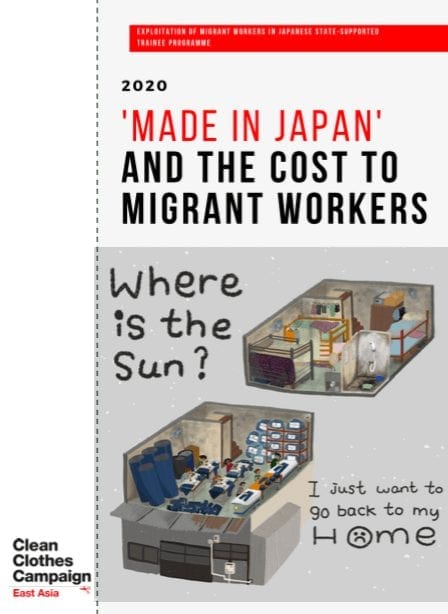
Made In Japan
Made in Japan is a report on migrant garment workers in Japan’s state-supported Technical Internship Training Program (TITP) who are subjected to widespread labor violations including poverty pay, debt bondage, enforced overtime, and inadequate and crowded living and working conditions, and fears grow for their safety during the Coronavirus outbreak.
The Technical Intern Training Program (TITP) is a state-supported mechanism for recruiting migrant workers to fulfil workforce gaps in numerous industries in Japan, including the garment industry. TITP started in 1993 as an initiative by the Japanese government to share Japanese skills and technology with developing countries. The stated aims by the Japanese government are to share Japanese skills and technology with developing countries by offering trainees a three-year work placement. In reality, migrant workers are a means to alleviate the intensifying labour shortage caused by an ageing Japanese society. 28% of Japan’s population is over over 65, and migrant workers offer a new, willing and younger workforce. Over 74% of trainees come from China and Vietnam, and the rest are recruited from India, Cambodia, Pakistan, Nepal and Sri Lanka.
In the Summer of 2015, May, a skilled tailor and garment worker in China, received a call from an employment agent, trying to persuade her to work in Japan. May was almost 50, and the agent assured May that age would not be a problem, and that the Japanese government was keen to welcome a wide range of migrant workers for the Technical Intern Training Program (TITP).
Read the full report here.
